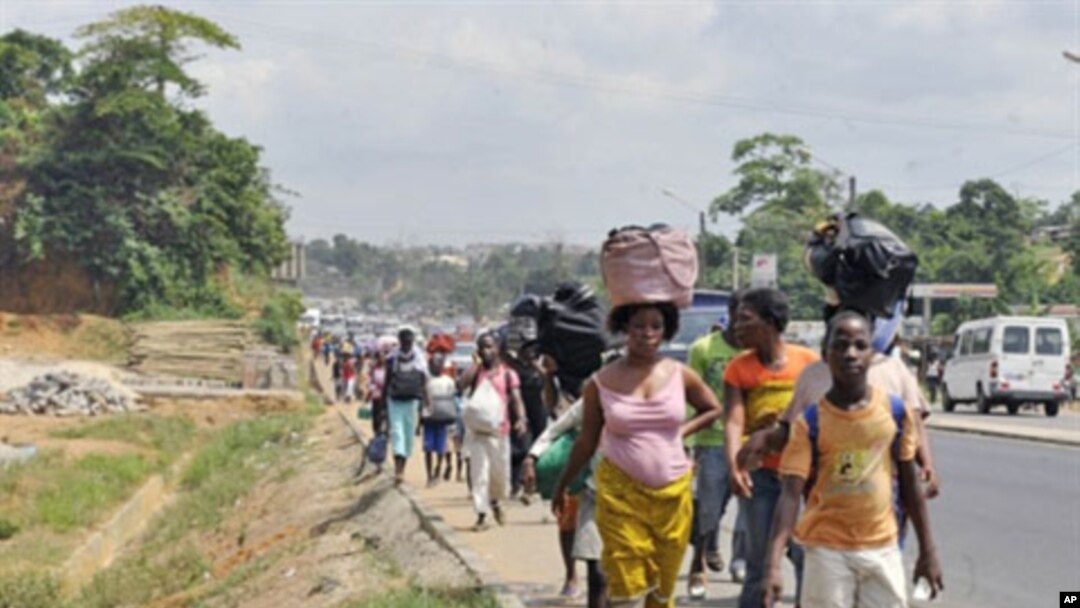In Ivory Coast, fighting between supporters of rival presidents is spreading and the number of displaced people is growing rapidly.
President Laurent Gbagbo has refused to step down and yield power to Alassane Ouattara. After elections in November, the U.N. certified Mr. Ouattara as the winner.
The U.N. refugee agency (UNHCR), says humanitarian organizations are finding it more difficult to reach those in need.
Spokesman Adrian Edwards says, “What we’re seeing in Cote d’Ivoire is an increasingly frightening situation. In Abidjan…the estimated number of displaced people is now exceeding 200,000. And these are mostly people who fled recent fighting in Abobo district.”
Insecurity is now spreading beyond Abobo to other neighborhoods, including the main business district of the commercial capital.
Elsewhere
“In the west of the country, we’re also seeing displacement problems because of insecurity there. And we estimate that about 70,000 people are displaced in the west,” Edwards says.
Many Ivoirians have crossed the border into Liberia.
“Liberia ended its second civil war in 2003, so it’s a country still recovering from that period. In the last days, we have seen a sharp rise in the number of Ivoirians coming across in the east of the country,” he says, “We have about 70,000-plus Ivoirians now in the east of the country. It’s jungle. It’s very difficult road conditions. Getting around, getting people help is extraordinarily difficult.”
Shrinking access to those in need
“The access we have as humanitarian workers is being squeezed hard, right now. It’s very difficult to reach people. We’re having to be creative and work with NGOs, who in some cases have better access than us, to get to people in need,” he says.
Edwards adds, “Take the situation inside Abidjan itself. We have concerns about people still trapped inside Abobo. We have all these displaced people, some of them in churches, others in other communal places. We don’t know where they all are and there’s insecurity in several parts of the city. So, it’s getting increasingly difficult to reach these people.”
There are growing communication problems as well. In Abobo, fighting has destroyed TV and SMS transmitters.
Refugee and IDP camps
“In Liberia, we have established a camp close to the town of Bahn,” says Edwards. “And in addition to that, we have about 15 locations where we’re trying to centralize people. But despite those efforts – and it is hard to get people to these places – we are seeing refugees moving into villages, communities. Some of them have family there or friends. There are about 70 to 80 villages in that border area that are hosting Ivoirians refugees at the moment,” he says.
The UNHCR was also building a camp in western Ivory Coast.
“We’ve had to suspend work [it] because of insecurity there. We continue our operations, but in very difficult circumstances,” says Edwards.
Heavy fighting is reported in the west near Duekoue and Blolequin, about 90 kilometers to the south.


